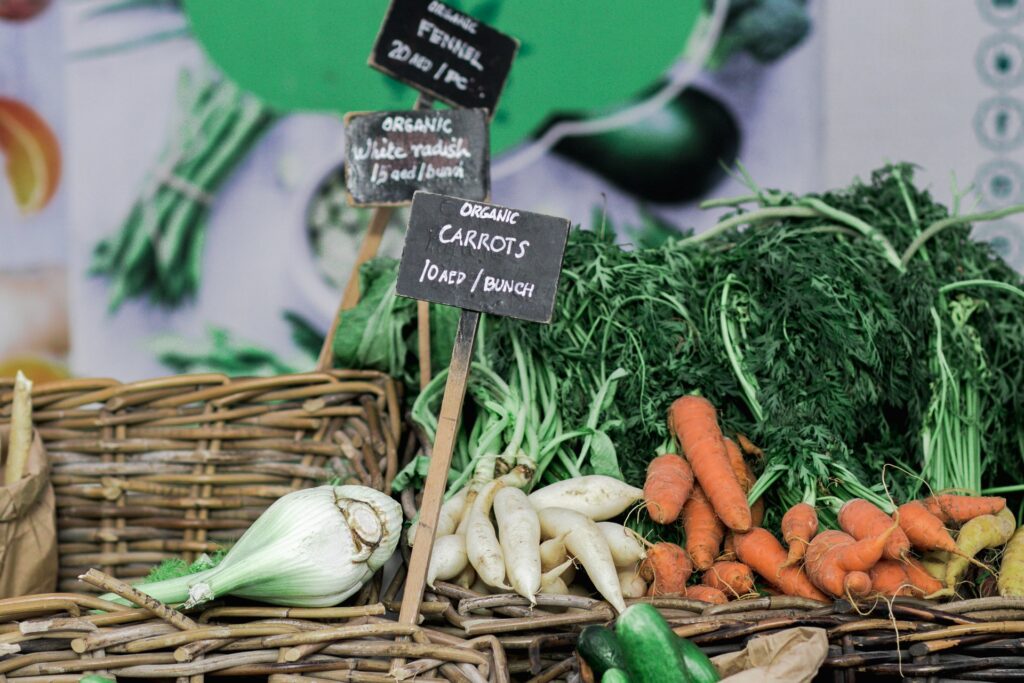Are Organic foods GMO free?
By Emily Journey / Contributor
Much has been researched and written about the use of genetically modified organisms, or GMOs, in food. And the findings and opinions are fervently divided.
Are Organic foods GMO free?
By Emily Journey / Contributor
Much has been researched and written about the use of genetically modified organisms, or GMOs, in food. And the findings and opinions are fervently divided.
Have you noticed while grocery shopping that some foods are labeled organic, GMO-free, certified organic, or Non-GMO? As a consumer this can be very confusing. Do the labels mean different things? If a food is organic, does that mean it is also GMO-Free? Do they overlap? It’s important to understand what ingredients are in the foods we buy so we can make smart decisions.
It probably won’t surprise you that there is not a simple answer to these questions. Nothing about the GMO debate is simple. To completely understand the difference between organic and GMO-free, you need to get a good grasp on what these terms mean and who makes the rules about them.
I’ve done some research for you and here is what I’ve found.

Photo by Kate Trysh on Unsplash
Who Makes the Organic and GMO-Free Rules
In regards to rules around organic foods in the United States, The National Organic Program (NOP) is responsible for developing national standards for organically produced agricultural products. It is housed within the USDA Agricultural Marketing Service, and among many other things, maintains a list of certified organic operations, helps farmers and businesses get certified, and manages the National List of Allowed and Prohibited Substances.
The Organic Trade Association represents over 9,500 organic businesses in the US. The organization’s goal is to promote and protect all that is organic to “achieve excellence in agriculture and commerce, protect the environment, and enhance community well being.” While the OTA does not establish the rules set by the National Organic Program, the farmers in their organization help set the regulation and provide guidance to government organizations.
In order to be certified by the National Organic Program, organic farmers don’t use genetically modified seed, and have procedures in place that prevent GMO cross contamination from nearby farms and keep everything separate — organic seeds, feed, crops, ingredients — from the non-organic. Around the world, every country has a different government body which determines these standards.
On the GMO rules side, recent labeling developments in the U.S. have brought this conversation to the national level. The USDA has established standards for what qualifies as “bioengineered”, the term to be used on U.S. foods starting in 2022, meaning that foods have been produced by changing the gene structure in some way. Worldwide standards for what constitutes a genetically modified organism can differ.
Here’s What The Terms Mean
The USDA defines different “levels” of organic that you need to pay attention to, because sometimes GMOs can sneak their way in.
100% Organic. This means the product contains 100% of organically produced AND completely GMO-free ingredients. Buying something that is labeled 100% certified organic usually ensures that it’s GMO-free. Usually. More on that later.
Certified Organic/USDA Organic. This label means that almost all of the ingredients — 95%–100% — are organic. But there is a small chance (up to 5%) that non-organic ingredients are present in the product. These non-organic ingredients are on a list called the USDA’s National List of Allowed and Prohibited Substances, linked above. The list does not contain GMOs, but does approve certain synthetic substances for use in organic crop productions, such as alcohols, ethanol, calcium hypochlorite, herbicides and newspaper or other recycled paper. That sounds pretty gross, but it is only up to 5%. Does it make a difference to you?
Made with Organic. Since this includes products with only up to 70% organic ingredients, they cannot use the “USDA organic” label. The part that’s NOT organic (30% or more) include substances that would not be allowed in 100% organic products, but that are produced without using generic engineering or other prohibited practices. Whew. Clear as mud?
GMO-Free and Non-GMO Labeling Practices
Seeing the label non-GMOs on an organic product means it’s been produced without genetic engineering or biotechnology and without GMO ingredients.
GMO-free means it’s been tested and proven to not contain any GMOs.
Many people use these terms interchangeably, but the difference between the two is often misunderstood because not all products are tested all of the time. Even if the package states non-GMO, if the product’s not tested, you can’t be 100% sure it’s GMO-Free.

Photo by Peter Hammer on Unsplash
The Skinny on Organic and GMO-Free Foods
A “Non-GMO Project” label and GMO-Free means that it does not contain genetically modified ingredients, but those products may or may not be organic. Stated another way, GMO-Free products can be organic or not organic.
Non-GMO does not mean organic, and does not necessarily mean the product is 100% free of GMOs. Because of drift and the amount of GMO corn and soybean in neighboring farms that can accidentally cross contaminate, you could potentially have trace amounts of GMOs in non-GMO foods. Additionally, trace amounts of GMOs could be found in animal feed from seeds traveling by wind, or by migratory birds that make their home in the soil of an organic farm. So, again, unless the product is tested, you won’t know with 100% certainty if a product is GMO free.
So the million dollar question remains: Are organic foods GMO-free? And the answer is: they are supposed to be. But, that’s not always what happens. Your best chance at avoiding GMOs is to buy certified USDA organic foods, because they do not intentionally include any GMO ingredients. This is the best and most easily identifiable way to assure you are eating GMO-free foods — most of the time.
How confident do you feel that 100% certified organic products you buy at the store are GMO-Free? Is it important to you that your foods contain absolutely no trace of GMOs? What are your thoughts about the cross contamination challenges? We want to hear your thoughts on this subject! Let the debate begin!

I want to be sure that all my organic products/produce are organic, non-genetically modified and have no chemicals, herbicides, radiation, etc involved in any of the processes. We pay a prime for our organic products and there should be complete assurance that this is what we are purchasing – especially today, with governments that have become too involved in allowing humanity to be poisoned with no consequences. We should be able to trust our Governments but we cannot. It is extremely important to be completely informed of everything that we are taking into our bodies.